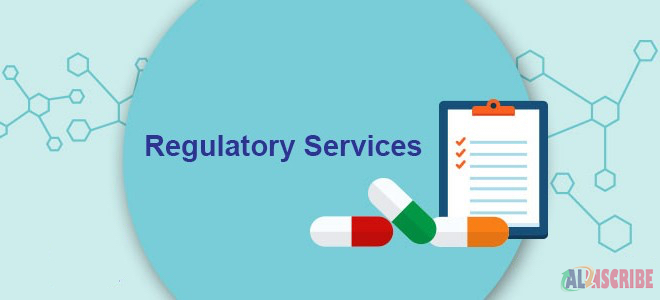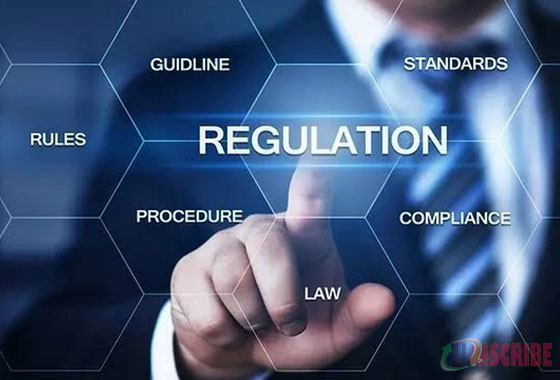The Importance Of Regulatory Services In Ensuring Consumer Safety
Author: ddregpharma
Published in: Health & Fitness

In today's fast-paced and ever-evolving market, the role of regulatory services has become more critical than ever in safeguarding consumer safety. As consumers, we often take for granted the security and reliability of the products and services we use daily. However, behind the scenes, regulatory services play a pivotal role in ensuring that businesses adhere to established standards and regulations designed to protect us. This blog delves into the significance of regulatory services and their impact on consumer safety.
Regulatory services, encompassing various sectors such as food, pharmaceuticals, cosmetics, electronics, and more, serve as the guardians of consumer safety. These services are tasked with enforcing laws and regulations that mandate strict quality control, safety testing, and transparent labeling of products. By doing so, they ensure that the items reaching the consumer market are safe, of high quality, and free from harmful substances or defects that could pose risks to health and safety.
One of the primary functions of regulatory services is the establishment and enforcement of standards. These standards are meticulously developed based on scientific research and risk assessments, aiming to minimize potential hazards associated with products and services. For instance, in the food industry, regulatory bodies such as the Food and Drug Administration (FDA) set standards for food safety, handling, and labeling. These regulations ensure that food products are free from contaminants and accurately labeled, thereby protecting consumers from foodborne illnesses and misleading information.
In an era where consumer markets are expanding at an unprecedented pace, the significance of regulatory services in safeguarding consumer safety has become increasingly paramount. These services serve as the linchpin in a complex ecosystem, ensuring that products and services meet rigorous safety and quality standards before reaching the consumer. This comprehensive exploration delves into the multifaceted role of regulatory services, the challenges they face, and their indelible impact on consumer safety and market integrity.

The Foundation of Consumer Safety
At the heart of consumer protection, regulatory services operate across diverse sectors, including food, pharmaceuticals, cosmetics, electronics, and more, each with its unique set of challenges and regulations. These bodies are tasked with the implementation and enforcement of laws and standards that ensure products are safe, efficacious, and accurately represented to the public. This encompasses a broad spectrum of activities, from the development of safety standards based on scientific evidence to the inspection and certification of manufacturing processes, and the monitoring of products post-market entry.
Establishing and Enforcing Standards
The cornerstone of the regulatory services' mandate is the establishment of safety and quality standards. These standards are not arbitrarily set but are the culmination of extensive research, risk assessment, and stakeholder consultation. They serve as a benchmark against which products are measured, ensuring consistency and reliability in consumer goods. Regulatory agencies like the Food and Drug Administration (FDA) in the United States, the European Medicines Agency (EMA) in the European Union, and others worldwide, play a pivotal role in setting these standards and updating them in response to new scientific findings and technological advancements.
Inspections and Compliance Monitoring
Regulatory services conduct thorough inspections and audits of facilities where products are manufactured, processed, or handled. These inspections ensure compliance with established standards, identifying potential risks to consumer safety. For instance, in the pharmaceutical sector, manufacturing facilities undergo rigorous inspections to ensure they adhere to Good Manufacturing Practices (GMP), thereby guaranteeing the quality and safety of medicines. Non-compliance can lead to significant consequences, including fines, product recalls, and in severe cases, the shutdown of facilities.
Crisis Management and Product Recalls
An integral part of regulatory services' role is managing public health crises and coordinating product recalls. When a product is discovered to pose a risk to consumers, regulatory bodies swiftly take action to mitigate the impact. This involves a detailed investigation to ascertain the cause of the problem, communication with the public about the risks, and the orchestration of product recalls. This process not only addresses the immediate crisis but also contributes to the development of strategies to prevent similar incidents in the future.
Challenges Facing Regulatory Services
Despite their critical role in consumer protection, regulatory services face numerous challenges. The globalization of supply chains introduces complexities in monitoring and enforcing standards across borders. Moreover, rapid technological advancements and the emergence of new product categories often outpace existing regulations, necessitating continuous adaptation of regulatory frameworks. Additionally, regulatory bodies must balance the need for thorough oversight with the imperative to not stifle innovation and economic growth.

Building Consumer Trust and Market Integrity
The effectiveness of regulatory services in ensuring consumer safety has far-reaching implications for consumer trust and market integrity. Rigorous regulatory oversight assures consumers that the products they use are safe and of high quality, fostering confidence in the market. This trust is essential for the functioning of a healthy economy, as it encourages consumer spending and participation in the market. Furthermore, a robust regulatory environment promotes fair competition among businesses, driving innovation and improvement in product quality.
The Road Ahead
Looking to the future, regulatory services must continue to evolve in response to changing market dynamics, technological innovations, and emerging consumer needs. This includes embracing digital technologies to enhance monitoring and enforcement capabilities, fostering international cooperation to address the challenges of globalization, and engaging with stakeholders to ensure that regulations remain relevant and effective.
Conclusion
The importance of regulatory services in ensuring consumer safety cannot be overstated. Through their commitment to establishing and enforcing standards, conducting inspections, managing crises, and fostering a safe and fair market, these services play a crucial role in protecting consumers from harm. As we navigate the complexities of modern consumer markets, the continued vigilance and adaptability of regulatory services will be essential in upholding consumer safety and confidence.
In conclusion, the work of regulatory services is a testament to the collective commitment to safeguarding the well-being of consumers. By supporting and enhancing these efforts, we can ensure a marketplace that is not only safe and reliable but also innovative and vibrant. The journey toward enhanced consumer safety is ongoing, and the role of regulatory services in this endeavor is both invaluable and indispensable.
Article Comments
Similar Articles
Articles Search
Sponsor
There are zero sub-categories in this parent category.
There are zero sub-categories in this parent category.
There are zero sub-categories in this parent category.
















